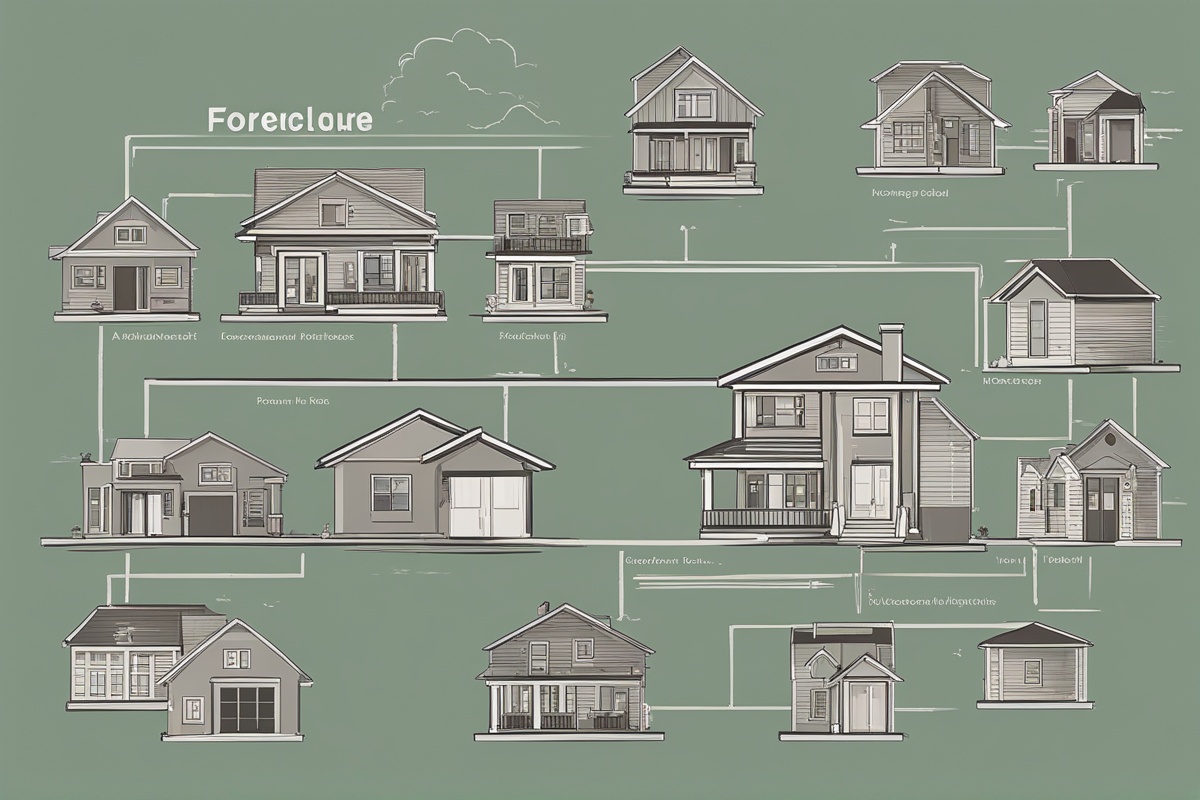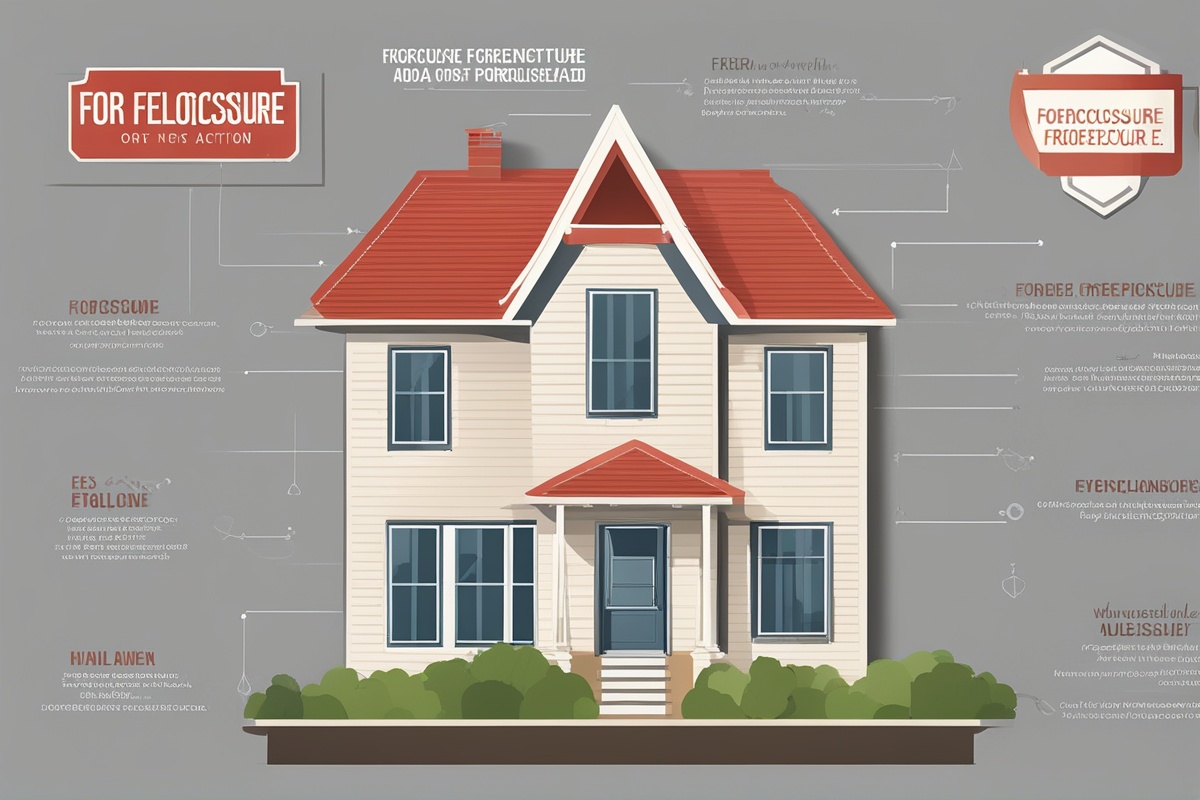Home repossession is a daunting and often misunderstood process that many homeowners may face during financial hardship. Understanding the home repossession process is crucial for anyone at risk of losing their property due to missed mortgage payments or other financial difficulties. This comprehensive guide will break down the stages of repossession, the legalities involved, and the options available to homeowners to potentially avoid losing their home. Whether you’re a homeowner in distress or simply seeking to educate yourself, this post will provide clarity on navigating this challenging situation.
What Is Home Repossession?
Home repossession, often referred to as foreclosure in some regions, is the legal process by which a lender takes possession of a property due to the homeowner’s failure to meet mortgage repayment obligations. Understanding the home repossession process begins with recognizing that it is typically a last resort for lenders. They often prefer to work with borrowers to find alternative solutions before initiating repossession proceedings. However, if payments remain unpaid for an extended period, the lender may have no choice but to reclaim the property to recover their losses.
The process varies by country and even by state or region within a country, but the core concept remains the same: repossession is a legal action taken to secure the lender’s investment. For homeowners, this can result in eviction and significant damage to credit scores, making it essential to act early if financial difficulties arise.
Stages of the Home Repossession Process
Understanding the home repossession process involves familiarizing yourself with its key stages. While specific timelines and procedures may differ based on local laws, the general steps are as follows:
- Missed Payments: The process often begins when a homeowner misses one or more mortgage payments. Lenders typically send reminders or notices during this early stage.
- Notice of Default: If payments remain unpaid, the lender may issue a formal notice of default, indicating their intent to pursue repossession if the situation isn’t resolved.
- Pre-Foreclosure Period: Some regions have a pre-foreclosure phase, during which homeowners can attempt to negotiate with the lender or sell the property to avoid repossession.
- Legal Action: If no resolution is reached, the lender files a lawsuit or initiates legal proceedings to repossess the property. This may involve a court hearing.
- Eviction: Once the lender gains legal ownership, the homeowner may be required to vacate the property. In some cases, an auction or sale of the home follows.
Each stage offers opportunities for intervention, which we’ll explore in later sections. Staying informed about where you stand in this timeline can be critical to protecting your home.
Legal Rights and Protections for Homeowners
Understanding the home repossession process also means knowing your legal rights as a homeowner. Many countries have laws in place to protect borrowers from unfair practices by lenders. For instance, lenders are often required to provide clear communication and adequate notice before taking action. In the United States, the Fair Debt Collection Practices Act (FDCPA) offers some protections against harassment by debt collectors during this process.
Additionally, certain jurisdictions may mandate a mediation or counseling period before repossession can proceed. Homeowners should research local regulations or consult with a legal professional to understand specific protections in their area. For more information on homeowner rights, check out our detailed guide on Foreclosure Rights for Homeowners.
Options to Avoid Home Repossession
While the prospect of repossession is distressing, there are several strategies homeowners can employ to prevent it. Understanding the home repossession process includes knowing the alternatives available to you. Here are some common options:
- Loan Modification: Negotiating with your lender to adjust the terms of your mortgage, such as lowering the interest rate or extending the repayment period.
- Forbearance: Temporarily suspending or reducing payments with the lender’s agreement, often during a short-term financial crisis.
- Short Sale: Selling the property for less than the outstanding mortgage balance with the lender’s approval, avoiding the full impact of repossession.
- Refinancing: Replacing your current mortgage with a new loan, ideally with better terms, to make payments more manageable.
Exploring these options early can make a significant difference. For additional strategies, read our post on Tips to Avoid Foreclosure.
Impact of Repossession on Credit and Future Finances
One of the most significant consequences of home repossession is its impact on your credit score. Understanding the home repossession process means recognizing that a repossession or foreclosure can remain on your credit report for up to seven years, making it difficult to secure loans, mortgages, or even rent a new home. This negative mark can lower your credit score by hundreds of points, depending on your prior credit history.
Beyond credit, repossession can also lead to financial strain if the sale of the property doesn’t cover the full mortgage balance, leaving you responsible for the remaining debt in some cases. To learn more about rebuilding credit after such an event, visit our guide on Rebuilding Credit After Foreclosure.
How to Seek Help During the Repossession Process
If you’re facing the threat of repossession, you don’t have to navigate it alone. Understanding the home repossession process includes knowing where to turn for assistance. Many organizations and professionals can provide guidance, including:
- Housing Counselors: Government-approved counselors can offer free or low-cost advice on managing mortgage issues. In the U.S., you can find a counselor through the Department of Housing and Urban Development (HUD).
- Legal Aid: If you can’t afford a private attorney, legal aid organizations may provide free assistance to help you understand your rights and options.
- Financial Advisors: A financial expert can help you create a budget or repayment plan to get back on track.
For more resources, explore our articles on Finding Housing Counseling Services and Accessing Legal Aid for Foreclosure.
Disclaimer: The information provided in this post is for general informational purposes only and should not be considered legal or financial advice. Every individual’s situation is unique, and laws regarding home repossession vary by location. We strongly recommend consulting with a qualified attorney, financial advisor, or housing counselor to receive personalized guidance tailored to your circumstances. The authors and publishers of this content are not responsible for any actions taken based on the information provided herein.
References
- Consumer Financial Protection Bureau – What is Foreclosure?
- U.S. Department of Housing and Urban Development – Avoiding Foreclosure
- Federal Trade Commission – Fair Debt Collection Practices Act
- Nolo – Understanding the Foreclosure Process
- Experian – How Does Foreclosure Affect Credit?
This content is for informational purposes only and not a substitute for professional advice.





